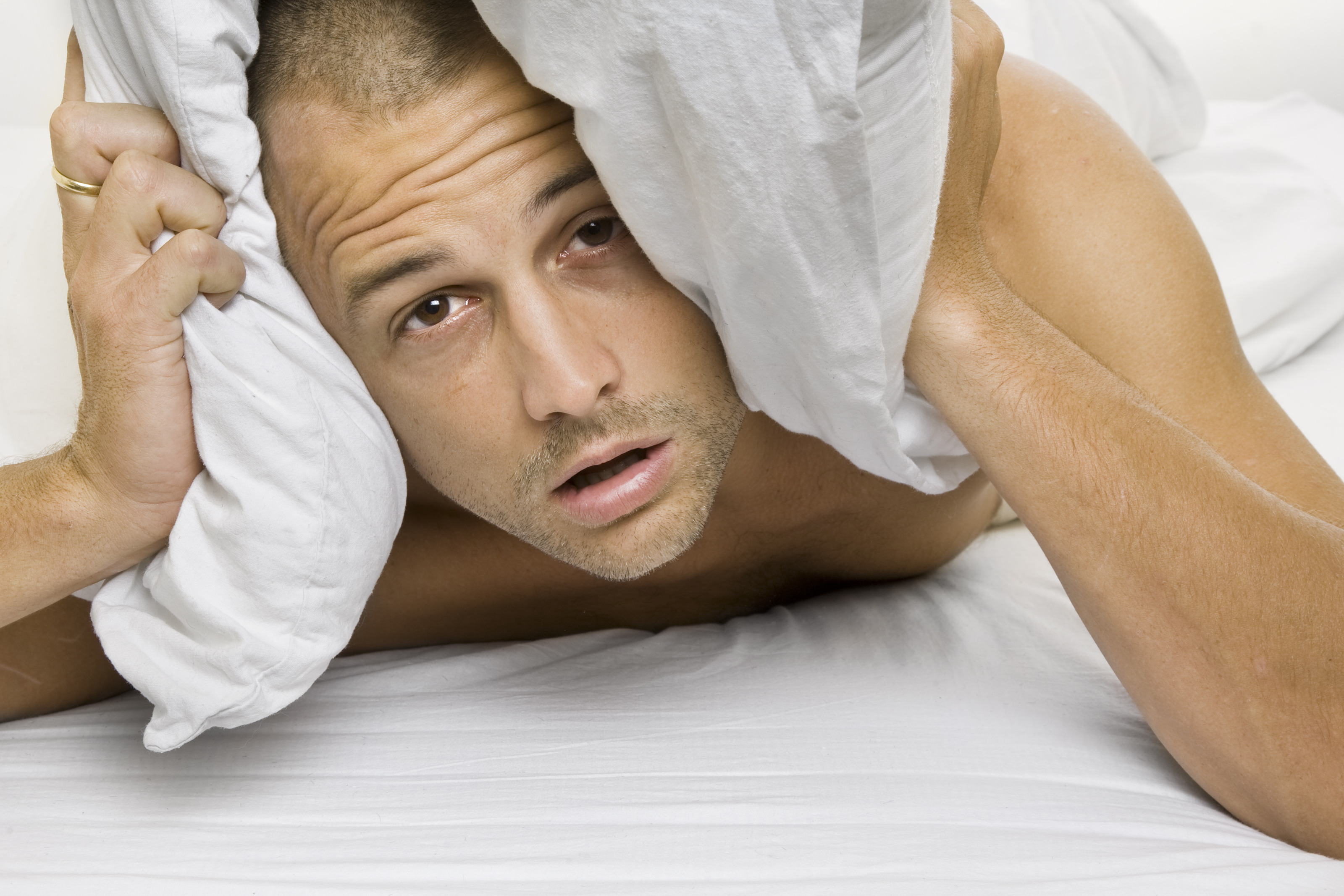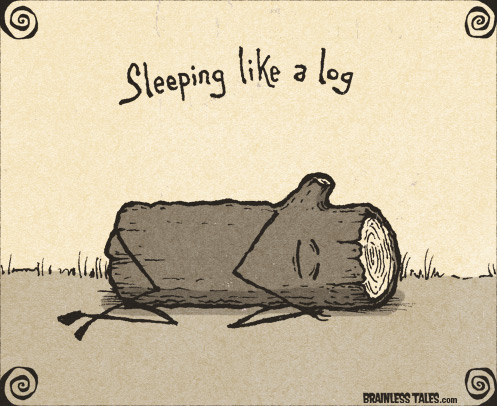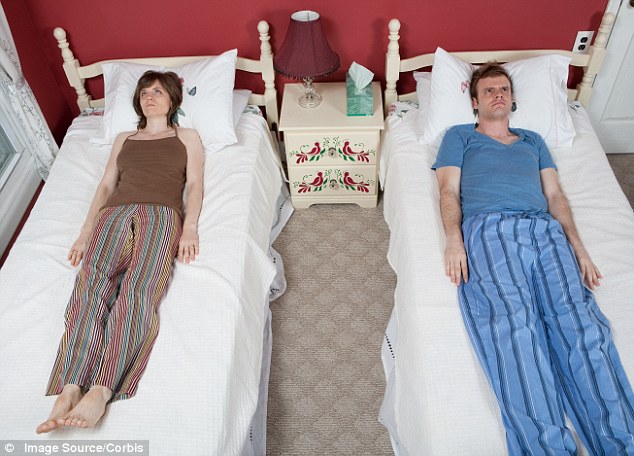Regular sleep for some is hard to come by. I find myself lying in bed, sometimes for hours, before I finally fall asleep. Before I can even enjoy some quality Z’s the alarm goes off and it’s time to get the day started again. Until recently, I had no idea that there were different stages of sleep, and each stage puts your body and mind through different actions. You will not receive a good night’s rest unless you understand how sleep works, and the benefits from the different stages of sleep.
Stage 1
The first stage of sleep (where I find myself most of the night) is the lightest stage of sleep. You aren’t really asleep yet, and you can easily be awoken. This transitional phase from light sleep to heavy sleep usually lasts 5-10 minutes. Your whole night’s rest can be affected on how you transition from stage to stage, so the quicker you can fall asleep the higher quality rest you will ultimately receive. If you’re mostly a stage 1 sleeper, or are one of those habitual snooze button pushers, you will always wake up feeling zombie like. Some people experience random muscle contractions in stage 1, so if you keep getting kicked by your significant other just hang in there, it will be over shortly.
 [IMAGE]http://www.healgrowtransform.com.au/help-me-sleep-why-you-cant-sleep-what-to-do-about-it/
[IMAGE]http://www.healgrowtransform.com.au/help-me-sleep-why-you-cant-sleep-what-to-do-about-it/
Side note–If you have trouble falling asleep quickly, here are a few tips:
1: Go to sleep and wake up at a set hour everyday.
2: Avoid using your ipad or phone before you sleep. The bright screens from computers, gadgets, and TVs can reduce your natural production of Melatonin, the hormone that regulates your sleep pattern.
3: STAY AWAY FROM CAFFIENE…at night (it’s ok coffee drinkers, breathe). If it’s absolutely necessary to start your day off with a coffee make sure it’s before noon so your body has time to wear off the caffeine before you go to sleep.
4: Keep your room at a cool temperature. Most people get the best sleep when the room temperature is around 65 degrees. Too hot or too cold of a room will affect the quality of sleep you get.
5: Avoid eating late at night. Your body will work to digest and absorb the nutrients so it can take longer to fall asleep.
Stage 2
Your brain begins to produce rapid, rhythmic brain waves called sleep spindles in stage 2. These waves stop your eye movement, body temperature decreases and your heart rate begins to slow. This is a comforting stage of sleep; where you won’t wake up from the slightest of noise, but also it won’t take a bullhorn to get you out of bed either. Those (weird) friends of yours who claim to never have dreams most likely sleep in stage 2 most of the night. Stage 2 transitionally lasts about 20 minutes; however you drift between stages throughout the night so some get caught in different stages longer than others.
 [IMAGE]http://hometolife.co.za/wp-content/uploads/2013/01/hastens-comfortable-sleep-envirnment-bed-bedroom.jpg
[IMAGE]http://hometolife.co.za/wp-content/uploads/2013/01/hastens-comfortable-sleep-envirnment-bed-bedroom.jpg
Stage 3 Welcome to everyone’s favorite stage, the “sleeping like a log” stage. Stage 3 is when the brain completely turns your body into a rest machine by using deep, slow waves (delta waves). You become less responsive in this stage to noises or feeling, so someone could be hitting you with a pillow and you wouldn’t respond until the beat down is near completion. Babies and kids drift blissfully into stage 3, while it takes much longer for adults to be completely lights out. The very embarrassing bed-wetting or the freaky sleepwalking actions are most likely to occur at the end of this stage. Deep sleep is extremely important to your health. While you are in Stage 3 deep sleep, your body is working hard to repair/restore muscles and tissues with hormones that stimulate growth. It’s also believed that your immune system is repaired while you sleep. If you’re not getting the correct amount of sleep, not only will you feel groggy during the day, but you may be more susceptible to illness as well.

[IMAGE]http://www.brainlesstales.com/images/2011/Sep/sleeping-like-a-log.jpg
Exercise is extremely beneficial to a healthy lifestyle, and it is also a factor in how quickly you fall asleep. Many people believe that a good workout right before bed will put them to sleep right away. SPOILER ALERT: it actually has the opposite effect. When you work out your body temperature rises a couple degrees, however, when you are asleep your body temperature decreases. If you work out right before bed, your body has to work a little harder to bring the core temp down to a comfortable degree where it can relax and get to sleep. The best time to exercise is in the afternoon or early evening. After you get your workout in, your body has 3-5 hours to drop in temp (which is natural after working out). Once you are ready for bed, your body has decreased in temp and you will drift into some good sleep much quicker. Cardio is the preferred workout to do (to help you sleep faster) because it gets the heart pumping. Whether it’s walking the dog, going for a swim or running, make sure it’s routine so it help regulate sleeping patterns.
Stage 4
Stage 4 is the last stage of sleep, and it’s called REM sleep. REM stands for “rapid eye movement. This stage is where all the dreaming goes on. Your brain begins to work on hyper drive while your muscles become temporarily “paralyzed”. In the same way your body repairs and recovers in stage 3, your brain acts similarly in stage 4. All of your memories and experiences from the previous 24 hours are connected with past experiences, and the irrelevant info (ex. What you saw an old lady wearing) is forgotten. After REM sleep, your sleep cycle resets to stage 2, and progresses many more times throughout the night. REM sleep is brief the first time around, and gradually gets longer and longer after each cycle. Your last dream of the night is usually the longest, and can last up to an hour long! Overall, sleep is much more complex than you think. Each stage differs from one another, and you ultimately cycle through all 4 stages at least once a night. Everybody is different from one another, so we all can’t fall asleep to perfect patterns. There are little tricks here and there to ensure better sleep, but the biggest point is this: SLEEP IS ESSENTIAL!! As we age, we sleep less and receive fewer benefits from quality rest. Humans sleep for about 1/3 of their entire lives, so make sure you’re getting everything you can out of it. Sleep well folks.
Post Written by Pillow Expert Jesse E.
 Image via http://simplepedic.com/wp-content/uploads/2014/07/snoring.jpg
Image via http://simplepedic.com/wp-content/uploads/2014/07/snoring.jpg Image via http://www.dailymail.co.uk/femail/article-2360193/One-couples-sleep-separate-beds.html
Image via http://www.dailymail.co.uk/femail/article-2360193/One-couples-sleep-separate-beds.html Following these tips can greatly improve your sleep as well as help combat snoring. And, while these tips may work for some, we can’t stress enough the importance of seeking advice from a medical professional to help ensure your case of the “snores” isn’t something much more serious.
Following these tips can greatly improve your sleep as well as help combat snoring. And, while these tips may work for some, we can’t stress enough the importance of seeking advice from a medical professional to help ensure your case of the “snores” isn’t something much more serious.



